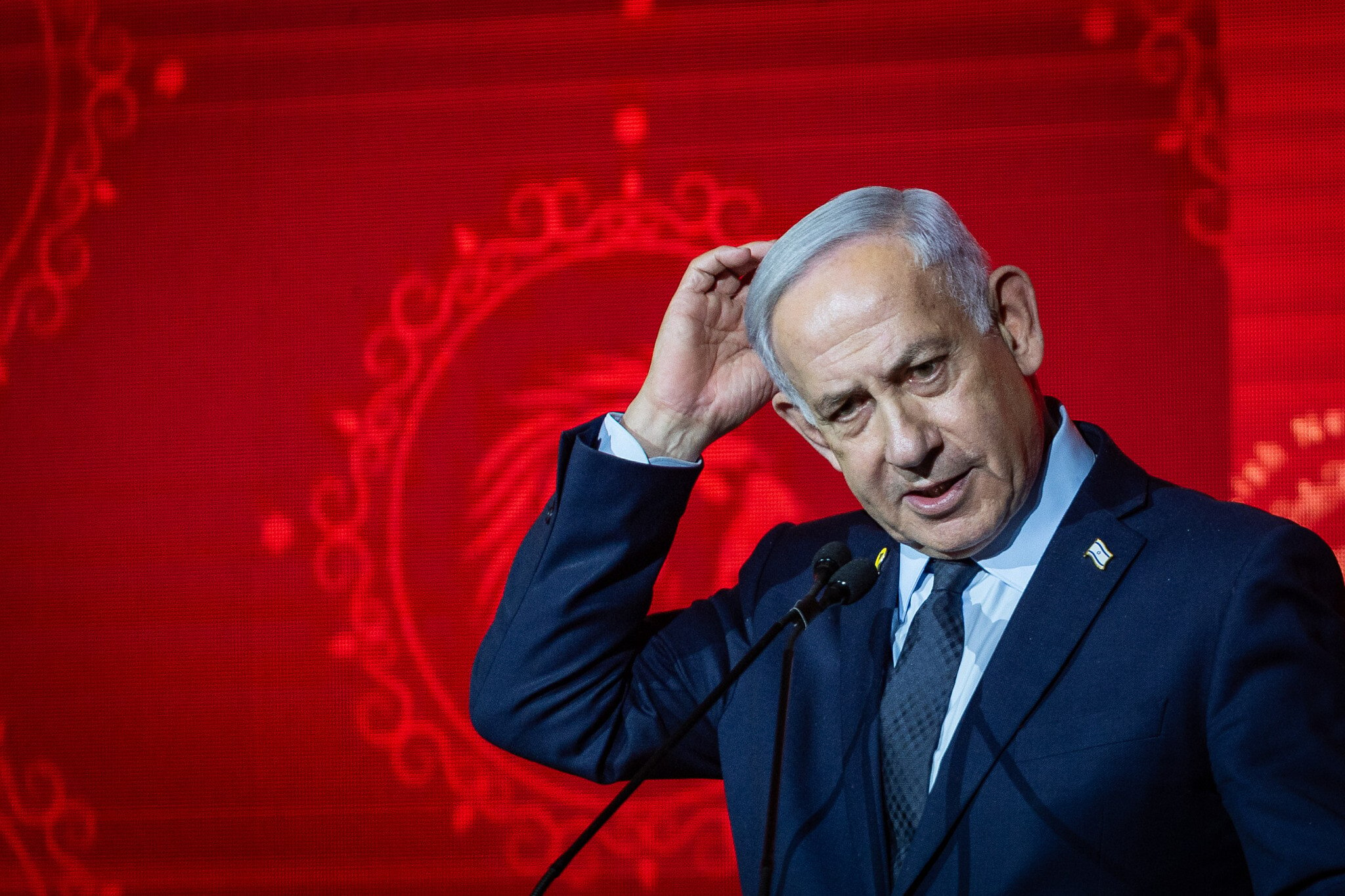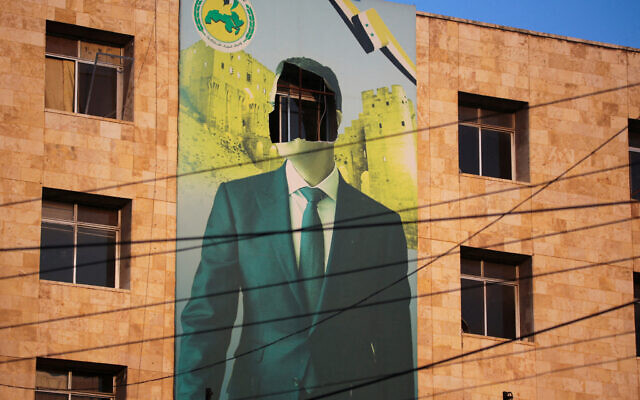



Israeli warplanes last year intercepted Iranian aircraft headed toward Syria, preventing them from delivering troops meant to assist the country’s embattled president at the time, Bashar al-Assad, Prime Minister Benjamin Netanyahu said Sunday.
The remarks in a speech gave a new glimpse into Israel’s thinking in the final days in power for Assad, a longtime enemy who was overthrown by Islamist-led insurgents last December.
Speaking to a conference hosted by the Jewish News Syndicate in Jerusalem Netanyahu claimed that arch-rival Iran wanted to save Assad after watching the Iranian-backed Hezbollah terror group in neighboring Lebanon suffer heavy losses in fighting with Israel.
“They had to rescue Assad,” Netanyahu said, claiming that Iran wanted to send “one or two airborne divisions” to help the Syrian leader.
“We stopped that. We sent some F-16s to some Iranian planes that were making some routes to Damascus,” he said. “They turned back.”
He gave no further details.
In the days leading up to the fall of Assad, Israel had observed Tehran sending troops to bolster the Syrian dictator, and warned it against taking the opportunity to smuggle weapons across the border into Lebanon.
“We need to make sure that we are not threatened. We are a sovereign country and we will make sure that Iranian weapons are not smuggled to Hezbollah,” then-IDF spokesman Daniel Hagari said at the time.
The final rebel offensive that toppled Assad broke out just days after a ceasefire came into effect between Israel and Hezbollah, bringing to a halt more than a year of fighting, including several months of all-out war.
The fighting in Lebanon meant that, in the months leading up to Assad’s ouster, Hezbollah withdrew its operatives from Syria, including the north, to focus on battling Israel. The rebels pointed to the terror group’s withdrawal from Syria as one of the reasons they faced little resistance as they captured city after city from Assad’s forces.
“We looked at the [ceasefire] agreement with Hezbollah and understood that this is the time to liberate out lands,” a rebel commander told Israel’s Channel 12 at the time. “We will not let Hezbollah fight in our areas and we will not let the Iranians take root there.”
Even with Assad gone, Israel has remained vigilant over Syria, distrustful of its new Islamist government led by President Ahmed al-Sharaa.
A day after the fall of the Assad regime, Israel sent its troops into a UN-patrolled buffer zone separating Israeli and Syrian forces on the strategic Golan Heights, and has kept them stationed there since.
It has described its presence in southern Syria’s buffer zone as a temporary and defensive measure, though Defense Minister Israel Katz has said that troops will remain deployed in the area “indefinitely.”

